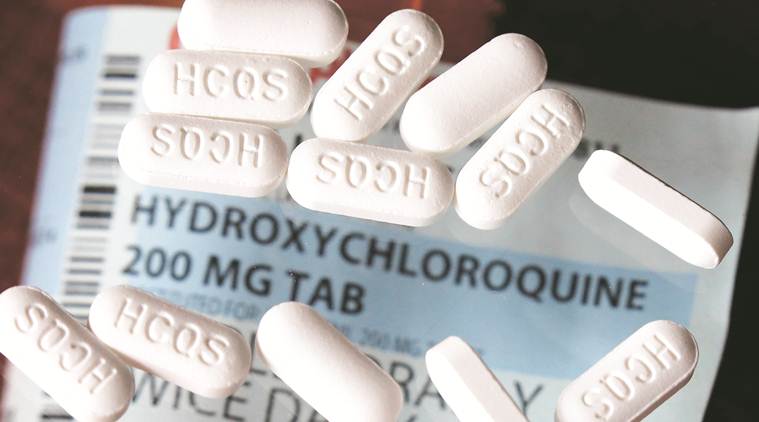Toronto: The malaria drug ‘hydroxychloroquine’ (HCQ) may not prevent COVID-19 illness or stop novel coronavirus infection. This will happen when hydroxychloroquine is used as preventive medicine within four days after exposure to the virus. A new study has revealed this fact.
Scientists, including those from the McGill University in Canada, assessed whether the drug hydroxychloroquine (HCQ) can prevent symptomatic infection.
The study has been published in the ‘New England Journal of Medicine’. The researchers conducted a randomised placebo-controlled trial across the US and parts of Canada. They tested HCQ as a preventive medicine, or prophylactic, following potential exposure to SARS-CoV-2.
“We enrolled adults who had household or occupational exposure to someone with confirmed COVID-19 at a distance of less than six feet. The exposure was for more than 10 minutes while wearing neither a face mask nor an eye shield (high-risk exposure). Also there were trials on those wearing a face mask but no eye shield (moderate-risk exposure),” the scientists wrote in the study.
Almost 90 per cent of the participants (719 of 821), according to the study, reported a high-risk exposure to a confirmed COVID-19 contact.
The researchers then randomly assigned the 821 symptomless participants to receive either a placebo (a fake drug), or HCQ. The administration was done within four days after exposure.
According to the study, the drug treatment involved 800 milligrammes (mg) of HCQ given once, followed by 600 mg in six to eight hours. Then 600 mg daily for four additional days were administered.
The scientists then monitored the outcome in the patients, and noted if there was either laboratory-confirmed COVID-19 diagnosis. Researchers also checked if they developed illness compatible with the disease within 14 days.
They said incidence of new COVID-19 symptoms did not differ significantly between participants receiving HCQ (49 of 414), and placebo (58 of 407). According to the study, side effects were more common with HCQ than with placebo. However no serious adverse reactions were reported by the participants.
“After high-risk or moderate-risk exposure to COVID-19, HCQ did not prevent illness compatible with COVID-19, or confirmed infection when used as post-exposure prophylaxis within four days after exposure,” the scientists concluded in the study.
Citing the limitations of the study, the researchers said the vast majority of the participants, including healthcare workers, were unable to access testing due to the lack of availability of diagnostic testing in the United States.
Instead of diagnostic tests, they used the US clinical case definition of probable COVID-19 to evaluate the outcomes of HCQ prophylaxis. “Reproduction of our results in other, ongoing trials would confirm our findings,” the researchers said.
Myron S Cohen from ‘The University of North Carolina’ at ‘Chapel Hill’ in the US noted in an editorial linked to the study that the trial methods did not allow consistent proof of exposure to SARS-CoV-2. He said there was also no sufficient evidence confirming that the symptom complex that was reported by the participants represented novel coronavirus infection. “It is hard to be certain how many participants in the trial actually had COVID-19,” Cohen said.
Cohen pointed out that those enrolled in the trial were younger, with a median age of 40 years. Fewer had coexisting conditions than persons in whom severe COVID-19 is most likely to develop. “So enrollment of higher-risk participants might have yielded a different result,” he said.
Agencies
